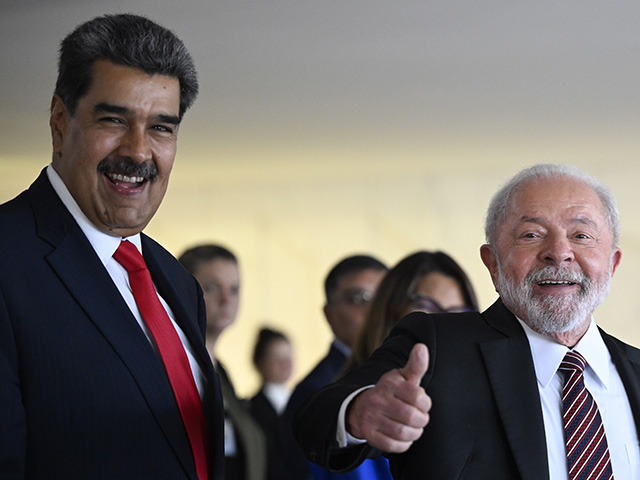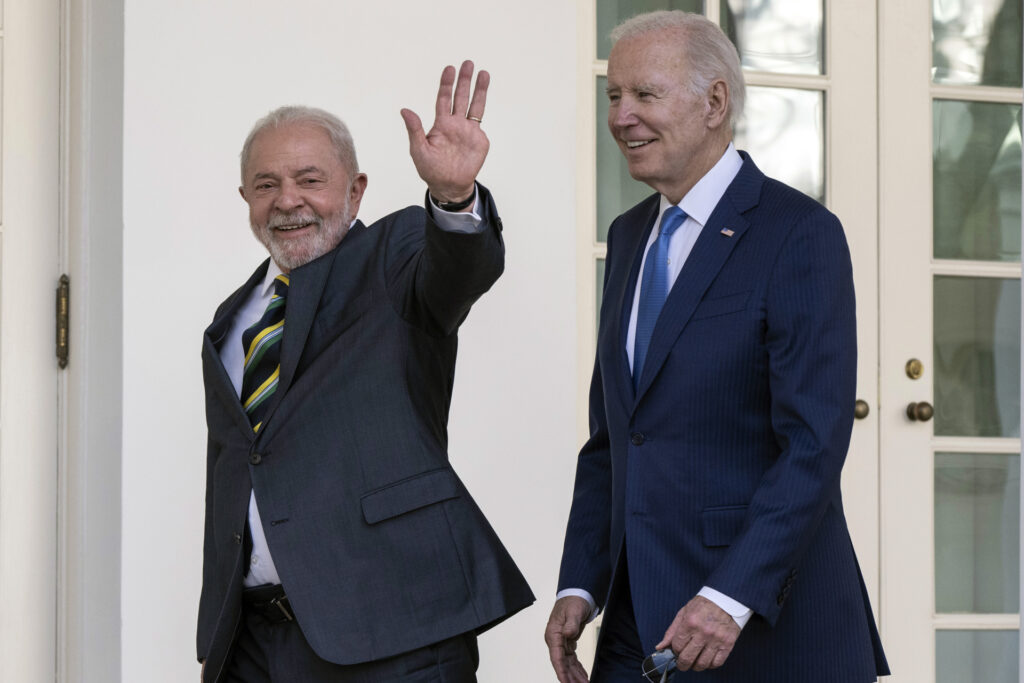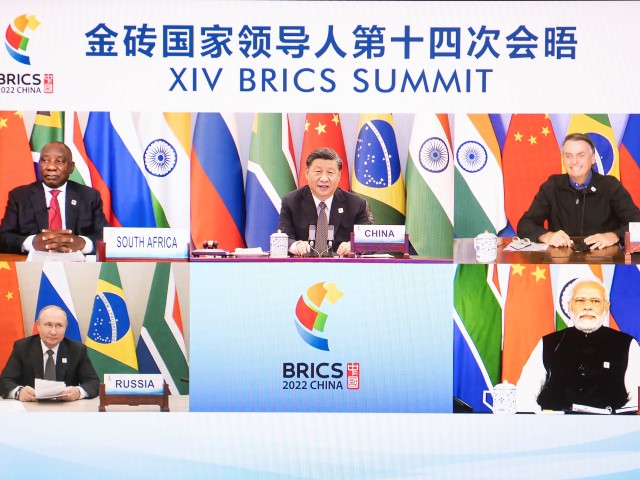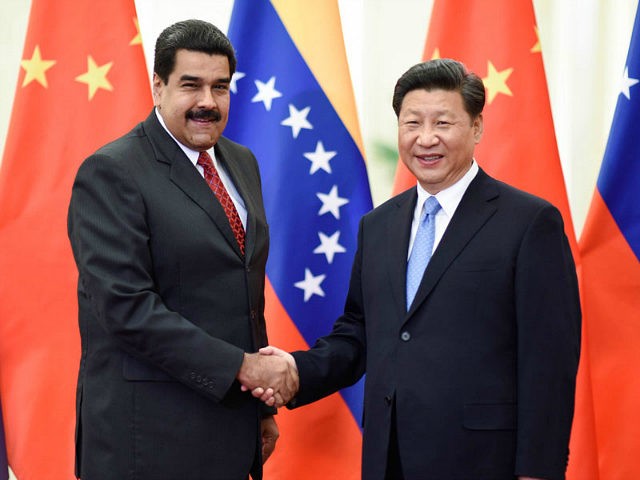Venezuelan socialist dictator Nicolás Maduro said on Monday that he would like to join BRICS, the economic alliance between Brazil, Russia, India, China, and South Africa that will hold its next summit in Johannesburg, South Africa, in August.
“If we are asked whether Venezuela wants to be part of BRICS in the future, yes, we want to be a humble part of BRICS and keep pace with the changing geopolitical situation,” Maduro said at a joint press conference in Brasilia with Brazilian President Luiz Inacio Lula da Silva.

Brazilian President Luiz Inacio Lula da Silva bids farewell to Venezuelan President Nicolas Maduro after a luncheon at the Itamaraty Palace in Brasilia, Brazil, May 29, 2023. (Mateus Bonomi/Anadolu Agency via Getty Images)
Maduro hailed BRICS for drawing applications from over 30 prospective new members seeking “peace and cooperation.”
“Venezuela would like to be part of BRICS and accompany the construction of the new architecture, of the new geopolitics, of the new world that is already being born,” he said.
Lula, the anti-American leftist who unseated Jair Bolsonaro in October despite a history of corruption, enthusiastically endorsed Maduro’s application for membership and hoped BRICS might help to end a century of U.S. economic dominance.
“My dream is that we have a common currency so that our countries can do business without being dependent on the dollar,” Lula said.
“Only one country is currently in possession of a dollar printing press, and this country does whatever it wants with the dollar currency,” he said.

Brazilian President Luiz Inacio Lula da Silva and President Joe Biden walk along the West Colonnade to the Oval Office at the White House in Washington, Friday, February 10, 2023. (Andrew Caballero-Reynolds/Pool via AP)
Lula hoped BRICS might change that by developing its own medium of exchange, “just like the European Union emerged with the euro currency.”
Maduro’s membership in BRICS might be problematic because his brutal regime is under heavy sanctions from the United States. Lula assailed those sanctions as “extremely exaggerated” and called on the U.S. to recognize Maduro as the legitimate ruler of Venezuela, even though he has never come close to allowing a free and fair election.
“I think it is really absurd that they deny that Maduro is president of Venezuela,” he said.
Maduro said he plans to ask the entire region of South America to demand the lifting of U.S. sanctions against his regime.
“We flatter the economic, financial, and monetary power of other nations from the North, but many of those we flatter condemn us to ostracism, to financial, economic, and monetary weakness forever,” Maduro said, repeating his common theme of blaming Venezuela’s economic woes on U.S. sanctions instead of his own policies.

Chinese President Xi Jinping hosts the 14th BRICS Summit via video link in Beijing, capital of China, June 23, 2022. Xi delivered remarks titled “Fostering High-quality Partnership and Embarking on a New Journey of BRICS Cooperation” at the summit. South African President Cyril Ramaphosa, Brazilian President Jair Bolsonaro, Russian President Vladimir Putin and Indian Prime Minister Narendra Modi attended the summit. (Li Tao/Xinhua via Getty Images)
“No, we have to build a new geopolitics, and that new geopolitics has fundamental components such as the union of South America,” he said, touting BRICS as an “advanced” version of such regional unity.
Lula blasted his predecessor Bolsonaro for banning Maduro from entering Brazil, a restriction Lula lifted soon after his own election.
“It’s hard to believe so many years went by with no dialogue with a neighbor with whom we share the Amazon region,” Lula said. “I hope that never again in the history of Brazil will we see ourselves in the situation of breaking relations with another country, as happened with Venezuela.”
Lula invited a dozen South American leaders to gather in Brasilia on Tuesday in an effort to revive the Union of South American Nations (UNASUR), his previous effort at creating a regional economic and political collective. Lula was president of Brazil once before, and in 2008 he brought several other left-wing leaders and tyrants together to sign a cooperation treaty, including Maduro’s equally thuggish predecessor Hugo Chavez.
UNASUR failed as more conservative governments were elected in the South American countries that still allow their people to vote, but Lula touted Tuesday’s summit as the first meeting a revived UNASUR has held in ten years.
Maduro celebrated last Tuesday as the 15th anniversary of the Union of South American Nations treaty, portraying it as a turning point in regional history. “On a day like today, Commander Hugo Chavez advocated for the creation of UNASUR, taking as a basis the idea of the great homeland that our liberator Simon Bolivar expressed,” he said.

COMMENTS
Please let us know if you're having issues with commenting.